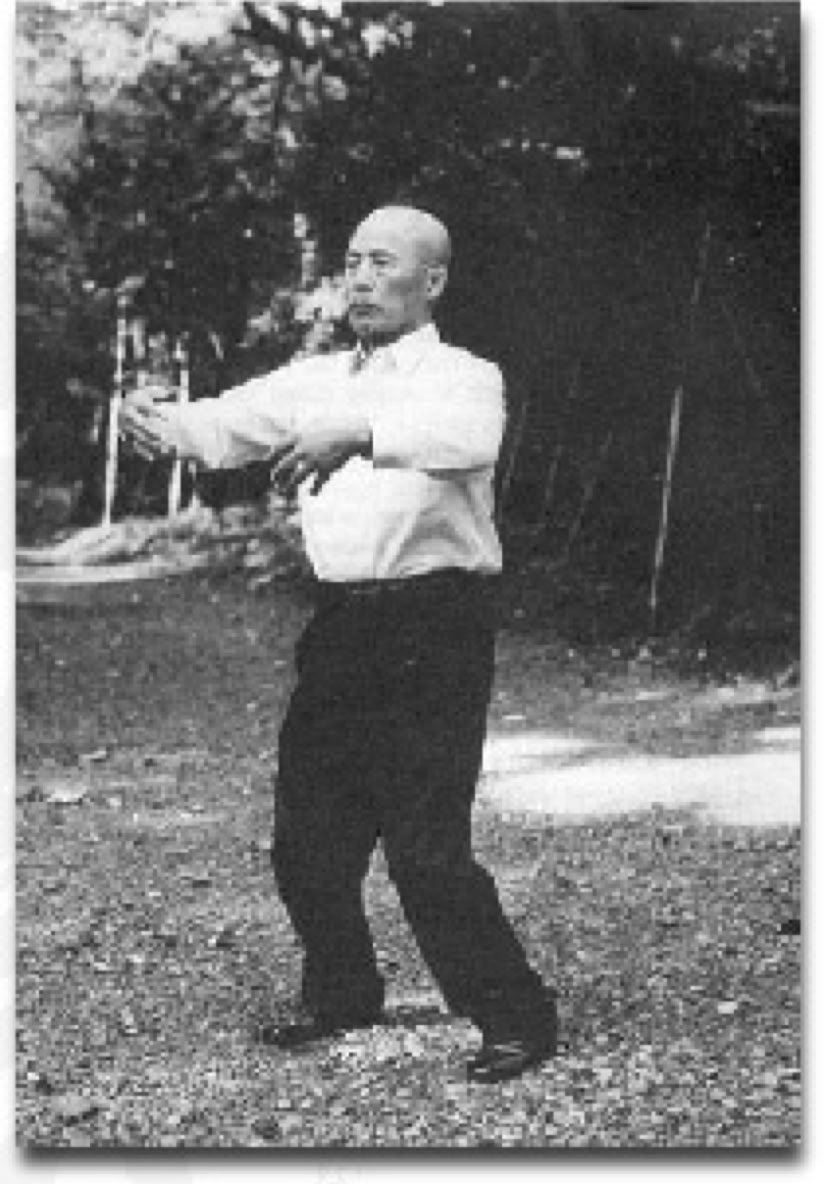
Internal Martial Arts
the
TAIKIKEN
pages
Put away the wine and stop the music, and the mind suddenly feels as though it has suffered loss; it is upset, as though it has been bereft of something. What makes this happen? Using external, instead of using internal in such a way as to make the external pleasant.
2026

"Taikiken Ritsuzen - Standing Zen - Cultivate Inner Power and Generate Sudden Energy with Zhan Zhuang Health Stance"
In Japan the most widely practiced Zen discipline is zazen, or seated meditation. But the Chinese practitioners of the martial arts often use a standing Zen devised to reinforce the person's inner power and to enable him to generate sudden, violent bursts of energy. This energy is generally called ki, and standing Zen is the best way to cultivate it. As I have already said, verbal explanations of ki are no more than empty words because they cannot lead to a true understanding. Self training through standing Zen, training sessions, and combat with opponents are the only things that lead to an awareness of the meaning of ki. The famous men of Hsing-i-ch'üan, Ta-ch'eng-ch'üan, and Taikiken have all taught that Zen and training are the only ways. My own enlightenment to the nature of ki did not occur until I had returned from China and had spent many years in combat training in Japan.
Wang Hsiang-ch'i used to say that the atmosphere of ki can be suggested by comparison with a fish swimming in a pond. When a small stone is dropped into the pond, the fish instantaneously swims away. This reaction is more than what is usually called the operations of the motor nerves. Believing what he said to be true, I teach the same thing to my students.

The person who understands ki is always able to generate it and to use perfectly natural bodily motions to counter the attacks of whatever opponents may arrive on the scene. A person who does not understand it, however, may train his muscles as much as he wishes, but he is likely to be pulled into the attacks of his opponent. Of course, it is possible to pounce on an opponent and to be prepared to die if need be for the sake of victory, but this is the attitude of the young, not that of the man mature in the martial arts. No matter how long one trains to accelerate punches and kicks, it is impossible to double their speed. As one grows older, they are bound to slow down. A mastery of ki, on the other hand, enables any one to punch and kick speedily on the instant. In other words, a person who understands ki is always capable of moving toward the opponent with natural ease, of defending himself, and of turning defense into attack. Speed is not the issue; it is mastery of ki that counts.
The standing Zen used to gain an understanding of ki is performed only by martial arts men and is different from the seated Zen meditation of Zen Buddhism, the ultimate goal of which is psychological discipline. Of course, in standing Zen too psychological discipline is important, for the person must be able to react in a mindless way to the opponent's moves and must not rely on conscious judgments. But the standing meditation regimen has physical aspects as well. These are related to the physical training of the martial arts and are based on the premise that instantaneous motion must be possible at all times. (There is a modification of full standing Zen that is called half-Zen or han-Zen).
It is best to practice standing Zen in the morning and out of doors. New spiritual powers only well up in human minds when people are in a natural setting. Furthermore, each person must be entirely flexible in his attitude toward place and conditions of training. That is to say, each person must be able to train anywhere and at any time. The idea that training halls, training equipment and opponents are requirements of training may express interest in the martial arts but does not reveal the attitude of a person truly devoted to them. Standing Zen among the trees gives one an indescribably good feeling of being in harmony with nature. Ki is born of this kind of Zen even when the person is temporarily out of sorts or not in the mood for what he is doing.




